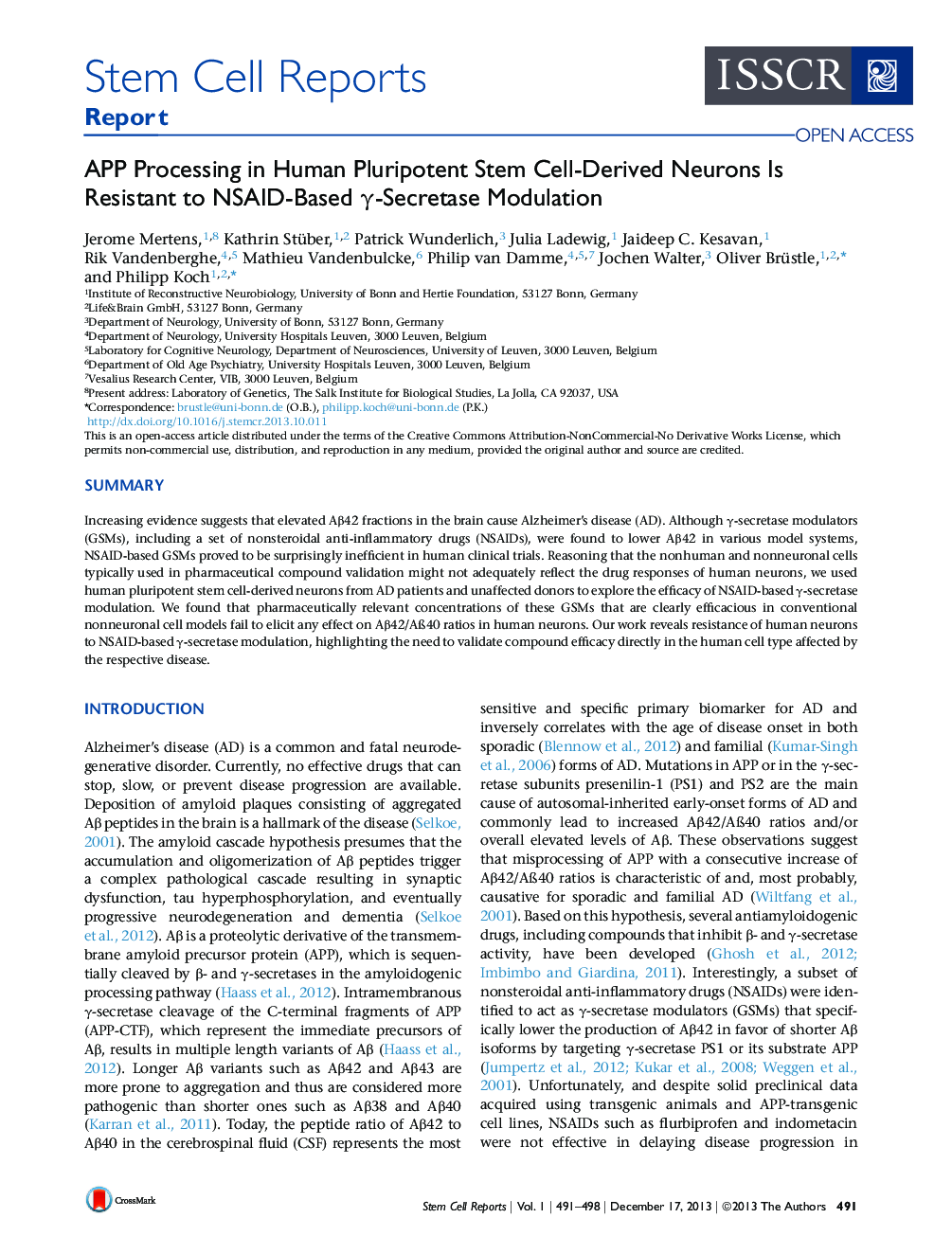| کد مقاله | کد نشریه | سال انتشار | مقاله انگلیسی | نسخه تمام متن |
|---|---|---|---|---|
| 2093476 | 1081961 | 2013 | 8 صفحه PDF | دانلود رایگان |

• iPSC-derived neurons from Alzheimer patients exhibit elevated Aβ42/Aß40 ratios
• Human neurons are resistant to NSAID-based γ-secretase modulation
SummaryIncreasing evidence suggests that elevated Aβ42 fractions in the brain cause Alzheimer’s disease (AD). Although γ-secretase modulators (GSMs), including a set of nonsteroidal anti-inflammatory drugs (NSAIDs), were found to lower Aβ42 in various model systems, NSAID-based GSMs proved to be surprisingly inefficient in human clinical trials. Reasoning that the nonhuman and nonneuronal cells typically used in pharmaceutical compound validation might not adequately reflect the drug responses of human neurons, we used human pluripotent stem cell-derived neurons from AD patients and unaffected donors to explore the efficacy of NSAID-based γ-secretase modulation. We found that pharmaceutically relevant concentrations of these GSMs that are clearly efficacious in conventional nonneuronal cell models fail to elicit any effect on Aβ42/Aß40 ratios in human neurons. Our work reveals resistance of human neurons to NSAID-based γ-secretase modulation, highlighting the need to validate compound efficacy directly in the human cell type affected by the respective disease.
Graphical AbstractFigure optionsDownload as PowerPoint slide
Journal: - Volume 1, Issue 6, 17 December 2013, Pages 491–498